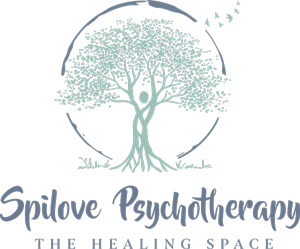If you find yourself struggling with cognitive distortions that are affecting your daily life and overall well-being, Spilove Psychotherapy is here for you. Whether you're based in Philadelphia, Bryn Mawr, or seeking the convenience of virtual counseling, our experienced team of therapists is available to help you recognize and challenge these distortions, ultimately leading you towards cultivating healthier thought patterns and achieving improved mental wellness.
CBT in Philadelphia—What is Cognitive Behavioral Therapy & Is it Right For You?
If you are living in Philadelphia, Center City, or out on the Main Line and find yourself feeling trapped in a cycle of negative thoughts, you may want to learn more about how Cognitive Behavioral Therapy (CBT) could help. Click on this blog to gain a deeper understanding of the potential benefits of CBT and to explore how it can offer you the support you need. We're here to provide you with additional details and support as you consider this treatment option, empowering you to make informed decisions about your mental health journey.
Women's Mental Health—A Guide to Finding Therapy in Philadelphia
If you're a woman in Philadelphia seeking therapy and are curious about how therapy can help you, look no further. Click on this blog to learn more about the powerful and transformative effects of therapy specifically tailored to support and empower women in their unique journeys towards healing and growth.
The 8 Phases of EMDR Therapy Explained
How To Prepare for EMDR Therapy & EMDR Intensives
Attachment Styles in Relationships (Plus 7 Ways to Manage Your Attachment Style!)
If you find yourself wondering what kind of attachment style your parents have *blessed* you with, if you're curious about what these attachment styles actually look like and how you can cope and support yourself, then worry not, because I am here to guide you through all of these important aspects.
Trauma & Sleep—6 Sleep Tips
Many people who have been through trauma have trouble sleeping. Our bodies stay tense and alert, making it hard to relax and feel connected to ourselves. This constant state of "being on guard" continues to affect us even after the danger is gone. So, what can you do when you're scared to fall asleep? How can you start to improve your relationship with sleep and have peaceful nights? Well, it's not easy because trauma-related sleep problems can feel overwhelming. But there are effective strategies to address and improve your sleep quality.












